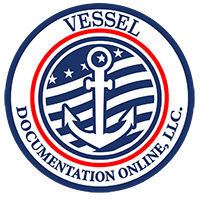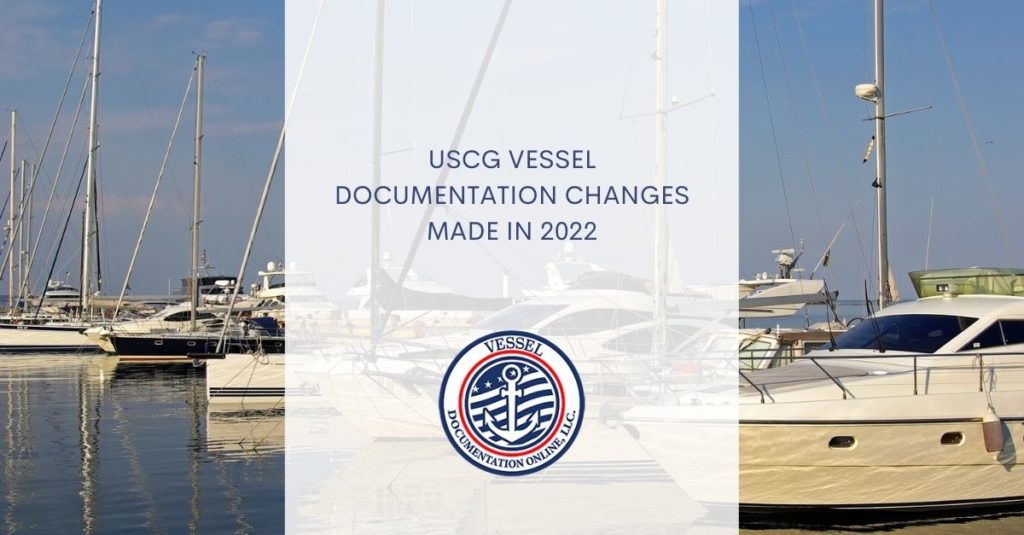USCG vessel documentation serves to register a vessel in the United States. It dates back to the 11th Act of the First Congress and is one of the oldest roles of the government.
The National USCG vessel documentation Center’s Certificate of Documentation for a vessel serves two purposes.
Certificate of nationality and authorization for general or particular trades are included inside the same document.
For all vessels engaged in US commerce, the Coastwise Trade, American fisheries, and pleasure boats, documentation is a mandatory requirement. At the same time, registration is an optional choice for pleasure vessels.
A Coastwise Trade endorsement is necessary to conduct “Six-Pack Charters,” and only US-built vessels are allowed. Any boat that isn’t being utilized for commercial purposes may apply for an endorsement for recreational purposes.
For boats that qualify, several endorsements are permitted. States of the Union It doesn’t matter whether the owner is a person, a partnership, a corporation, or a limited liability business; they all need to be citizens of the United States.
Each owning entity’s citizenship is defined under the Code of Federal Regulations.

The Big Change
As of January 2022, the United States Coast Guard will require Documented Vessels to have a 5-year expiry date on their certificates.
We are already putting this into practice for all of our customers, shortly submitting applications for Recreational USCG vessel documentation.
This may result in a slight increase in filing costs with the Coast Guard; nevertheless, you will only need to renew your license every five years instead of once a year as previously required.
When it comes time to sell your yacht, you must ensure that all of your paperwork is up to date to ensure the correct transfer of ownership/title.
This will benefit many persons who now fail to register their yearly renewal and are forced to pay reinstatement costs as a result.
Benefits of Maintaining a USCG vessel documentation
The maritime sector relies heavily on the documentation of pleasure boats in various ways to sail your boat in foreign seas.
It speeds up customs clearance and makes it easier to track down stolen vessels. It seems that the most excellent accessible technique of establishing some proof of ownership is paperwork, however.
According to flsenate.gov, the documentation does not guarantee ownership, but banks use it to provide some level of security when financing boats.
For the lender to register a First Preferred Ship’s Mortgage, paperwork is often required when financing a vessel.
For the lender, federal law provides protection and makes the maritime sector a viable business opportunity.
However, in states where there are no Titles, a State registration does not enable the filing of liens; unlike a vehicle Title, the three states of Massachusetts, Rhode Island, and Vermont offer Boat Titles, while Maine and New Hampshire do not.
Lenders in this business greatly value the consistency of Federal protection.
When a vessel is registered, its official number is permanently affixed to its interior (typically on the main beam or within an enclosed locker).
This number is used to identify the vessel during its whole existence in the federal documentation system. The Official Number is reactivated for the new paperwork when a vessel is taken out of documentation and subsequently reinstated.
Some states demand the exhibition of a decal on boats that have been registered, which necessitates the vessel’s registration.
Declaring compliance with state sales tax or use tax legislation is usually accomplished by placing this sticker prominently on the vessel.
Who Is Eligible To Obtain Documentation From The United States Coast Guard?
USCG vessel documentation is possible if you are a citizen of the United States and possess a net tonnage of at least five net tons.
Many cautions must be highlighted, including the fact that there are exceptions for some kinds of boats, such as certain oil spill response vessels, which must be considered. A necessary clarification is that the expression “five net tons” refers to the volume of something rather than its weight.
It is possible to measure the net tonnage of your vessel, or the length of your boat may be measured. When a structure is longer than 25 feet in length, it weighs at least five net tons on average, and this is nearly always the case.
Hopefully, you’ve learned a lot about Coastwise Trade and how this process works. Coast guard officials have established guidelines about documentation as well as registration. For example, they have determined what weight is allotted to the vessel’s usage, its construction, and whether or not it has been constructed in the United States.
Furthermore, USCG vessel documentation can be time-consuming and usually necessitates a considerable amount of documentation. Also, the USCG may exact charges for documents that contain errors within their text rather than clerical errors such as misspelled names or addresses. It’s also essential for people to know that Title 46 of the Code of Federal Regulations lays out rules relating to coast guard policy on documentation.




